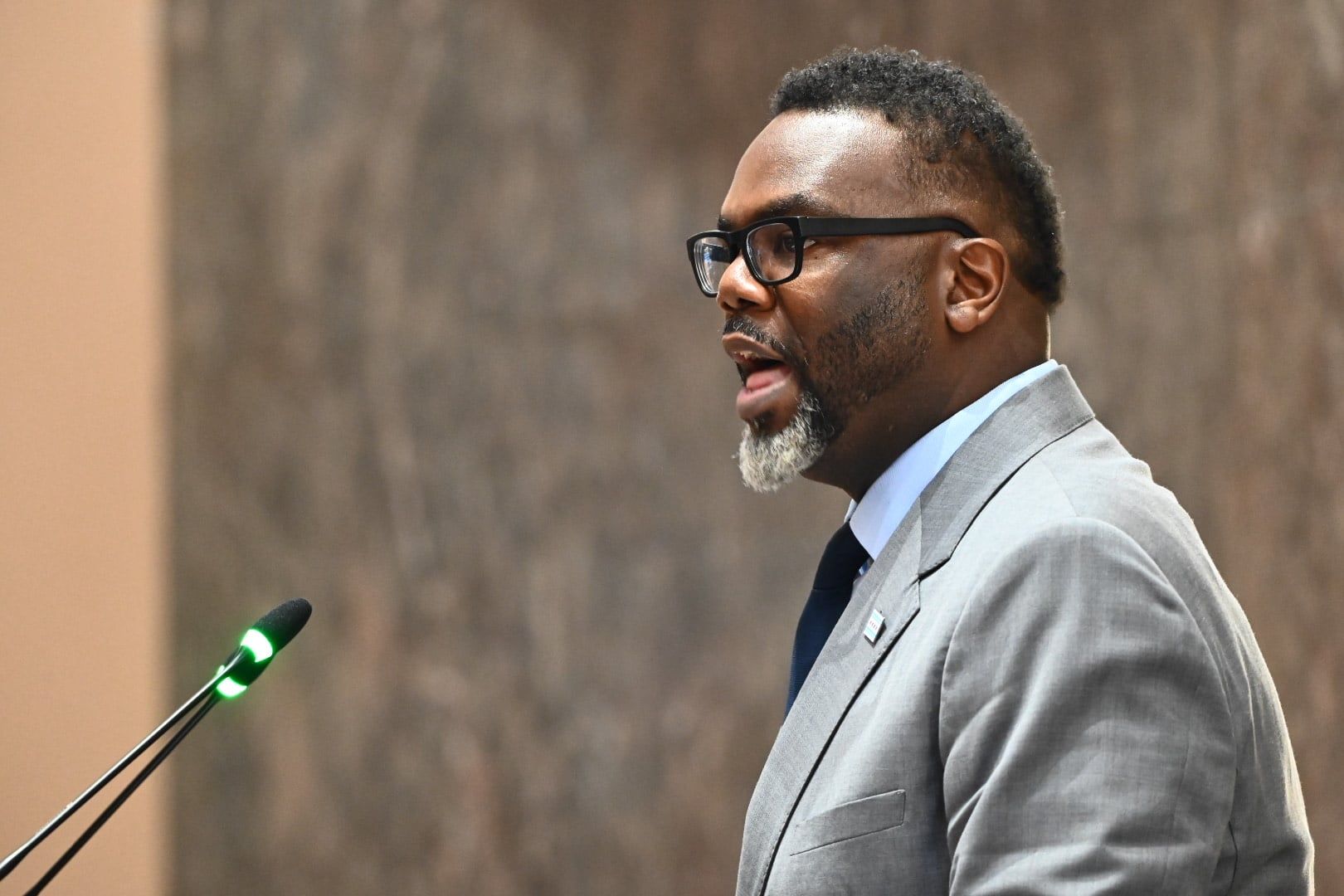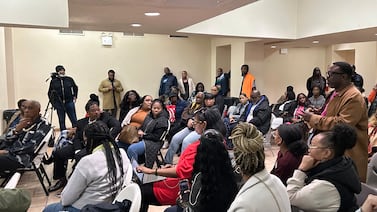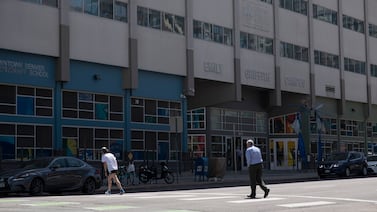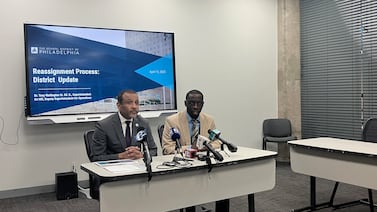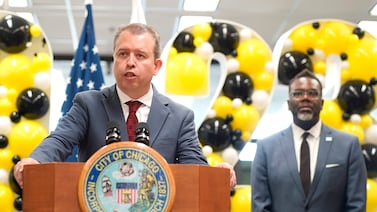Chicago Mayor Brandon Johnson put forward a $16.6 billion city budget proposal for 2024 that includes $76 million for youth jobs, the reopening of two public mental health clinics, and a push for a one-time tax on expensive homes to fund affordable housing.
The spending plan Johnson shared Wednesday is his first since taking office in May. The former organizer with the Chicago Teachers Union dashed former Mayor Lori Lightfoot’s hope of a second term in February and defeated former Chicago Public Schools CEO Paul Vallas in an April runoff.
Johnson, a former middle school teacher, got elected on a progressive platform embraced by the CTU and other community activists over the past decade that aimed to improve education by tackling issues beyond the classroom, such as affordable housing, environmental justice, and alternatives to policing.
The budget blueprint provides the first glimpse at how he might deliver on those promises. In a speech inside City Hall, he emphasized that the 2024 spending proposal is meant to uplift families like those he served as a teacher in Cabrini Green and as an organizer fighting the closure of public schools and mental health clinics.
“As we begin this work, I’m thinking about my family — especially my father. He was a pastor and a union laborer, raising 10 children and taking in foster children, working multiple jobs to keep us fed and sheltered,” Johnson said.
Johnson’s city budget proposal does not undo a cost shift implemented by Lightfoot in 2020 to have CPS pay for crossing guards and the pensions of non-teaching staff — two things long paid for by the city. The move angered the CTU at the time. The district’s portion of that pension payment grew to $170 million in 2022. The school district’s most recent budget did not list an amount.
Though the city’s budget is separate from the school district’s budget, it’s possible that the school district could take on additional costs traditionally included in the city’s budget in future years as the school board moves to being elected, rather than appointed by the mayor.
The proposed $78 million for youth jobs is an $11 million increase from last year. The additional money comes after the Johnson administration worked to boost the city’s longstanding summer jobs program, One Summer Chicago. It also comes as Chicago grapples with how to re-engage an estimated 45,000 youth who are neither in school nor working.
“We know that unemployment among young Chicagoans, in particular young Black women, rose during the pandemic and is lagging behind in the pandemic rebound,” Johnson said.
Ald. Maria Hadden, who represents Chicago’s Rogers Park neighborhood along the north lakefront, said she was happy to see the expansion in youth employment.
“It’s a number one thing, year after year,” Hadden said. “Our high school age youth and those who are just out of high school are looking for entry to careers, they’re looking for employment, they’re looking for activities, and things to do.”
Hadden noted that many young people are working to help contribute to their household income.
The Chicago Teachers Union issued a statement applauding Johnson’s 2024 budget proposal and said it “starkly contrasts with other mayors who have utilized austerity and privatization to shape policy, limit democracy and balance budgets at the expense of our city’s most vulnerable residents.”
One win for Johnson’s progressive base in his first budget proposal is the plan to reopen two of the city’s public mental health clinics that were shuttered in 2012 by former Mayor Rahm Emanuel. The decision preceded Emanuel’s decision to close 50 public schools, but was met with similar outrage. Activists have been pushing to reopen the six facilities ever since.
The 2024 budget plan also re-establishes the city’s Department of Environment, which was closed early in Emanuel’s first term. On the campaign trail, Johnson talked about the need to create green school buildings and update schools so they’re accessible for people with physical disabilities according to the federal Americans with Disabilities Act. But the city budget does not does not spell out specific funding for school construction and upgrades.
The $9.4 billion budget for CPS includes a pared-down $155 million capital budget for school repairs and construction. It doesn’t include a controversial plan to build a $120 million high school on the Near South Side.
But school district officials indicated over the summer that they would release a supplemental capital plan later this year. Late last month, CPS debuted a new Education Facilities Master Plan that said the district would need more than $3 billion in the next five years to address critical facility needs.
The mayor and City Council frequently allocate money from special taxing districts known as TIFs to help repair schools. The city will also declare a TIF surplus and return unallocated funds collected in those districts to the taxing bodies, including the school district. This year, CPS will get $226 million from the TIF surplus.
Johnson’s budget plan does not appear to include significant increases for child care, which Johnson argued for on the campaign trail. Advocates recently pushed for a dedicated revenue stream to help fund child care providers, which are regulated and supported by the city’s Department of Family and Support Services.
During the campaign, Johnson also promised to make bus and train rides on the Chicago Transit Authority free for students. (Like CPS, the CTA has a budget that’s separate from the city’s.) Amid a bus driver shortage and ongoing transportation troubles, the school district has offered CTA passes to roughly 5,500 students, mostly those attending magnet schools.
Only about 1,600 have taken advantage of the free transit passes, district officials said last month.
The City Council will hold budget hearings over the next month and is expected to vote on a final budget for 2024 before Thanksgiving. By law, it must approve a balanced budget by Dec. 31.
Becky Vevea is the bureau chief for Chalkbeat Chicago. Contact Becky at bvevea@chalkbeat.org.

